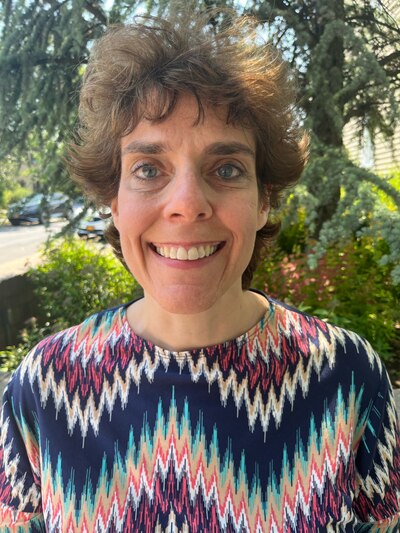In December, my son who has autism was placed in a New York State-approved residential school. It was a process that I began looking into when he was 12 years old; he had just turned 15 upon placement. It was a long, arduous journey.
I’m still adjusting to the new normal of Josh’s absence and healing from having made this decision. Perhaps the greatest difficulty for our family is simultaneously dealing with a new staff, a new district, and a new school environment.
It’s typical for children to switch schools at different points in their education. What’s different with a special education placement, particularly one in which the child requires a more restrictive environment, is implementing an IEP and setting goals. The period of “we’re still getting to know him/her” can take months, and parents may not be a part of the process as much as we’d like.

This most recent transition has me reflecting on the relationship between parents like me and the therapists and educators who help care for and educate our children.
Although we, parents, aren’t necessarily authorities in the fields of education or therapeutic interventions, we are experts in our children. We have spent years observing their habits, preferred environments, and strengths, and sometimes this information may not be seen as valuable in the same way a neuropsychological or speech evaluation is.
If parents are expected to be partners in their children’s education, we need to be consulted in their most effective interventions thus far. That involves building a direct relationship with not only the students but with their guardians, too.
As an autism parent, my knowledge evolved through continuous dealings with a motley crew of teachers and therapists throughout my son’s development. As is the case with students, there’s no one-size-fits-all rule in dealing with parents, but we all need to be an active part of the school team. This means talking not only about the goals we hope to set prior to an official IEP meeting and how they’re to be implemented — this means considering how we can best accomplish those goals together.
The best way to do this is to understand this most basic concept: Parents of many children with disabilities are terrified of their offspring’s impending transition into adulthood.
Asking us where we see our child at 21 is probably the worst way to start a conversation about the future. You may as well ask us what’s going to happen to our child when we die. A more compassionate approach would be, “What sort of path do you see for your son/daughter following graduation in order for him/her to achieve a purposeful and meaningful life? In general, our students exercise the following options,” and then provide a sample list. From there we can keep building on the necessary skills and goals to make certain that all of us are on the same page, while still retaining a sense of hope and perseverance in an already daunting situation.
In planning a student’s therapeutic interventions and goals, please make certain guardians understand the terms you’re using. Do not assume that they’ll know or ask. Hyposensitive, sensory integration, vestibular, and proprioceptive input are all terms I learned being hands-on in my son’s interventions as a stay-at-home parent. This is not the reality for all families, and even when it is, parents may fear that asking questions of educators and specialists will make them appear ignorant.
Parents of many children with disabilities are terrified of their offspring’s impending transition into adulthood.
To better enable a parent’s sense of meaningful participation, gently explain how and why what you’re doing may help and suggest activities into which we can integrate our child’s passions. This better helps us build upon your work at home.
When meeting to discuss my child’s issues, positive framing can make a big difference. Instead of saying “Josh has a very short attention span; it’s hard to get him to focus,” an alternative would be “Josh is so determined when he wants to do something, it’s hard to redirect him to an assigned task. How have you been successful in engaging him in a non-preferred activity?” Sometimes, I’ll have an answer and sometimes I won’t, but this will create a dialogue between us as opposed to a report of my son’s limitations and the frustrations that may arise along with them.
Finally, please don’t generalize when describing my child. Saying “I really like working with Josh” doesn’t give me any sense that you understand who he is or what makes him tick. Talk about his specific qualities, even if they seem irrelevant to the work.
I never tire of hearing school staff speak of Josh’s clever wit, sense of humor, or sweetness, and how they manifest in the classroom. Remember that parents of students with disabilities are raising children in a primarily neurotypical world, one in which our offspring’s attributes rather than deficiencies often go unnoticed, if not ignored.
We realize that the goal of their formal education is to prepare these students for a world outside of the classroom. To best accomplish this, we need to feel that there is more than a timeline involved. We need a sense of meaning in the effort we’re putting forth and the possibility for improvement in our child’s outcome. Only then can we keep pushing through the challenges, retain hope, and have a sense of why we are doing this work as opposed to an attitude of “what more needs to be done now?”
I understand that expecting the staff working with Josh to keep me updated on a weekly basis is unrealistic. If I want as full as possible a picture of his ever-evolving passage into adulthood, it’s my responsibility to maintain a dialogue between us. My hope is that those working at the residential school see these conversations as opportunities — not only for Josh but also for our family and in service of the essential work that they do.
Jennifer Berger lives in Queens, New York with her husband, Aaron. After 15 years of being a full-time mother and advocate for her son, Josh, she is now coping with the new circumstance of her son attending a residential school. At this point, Jennifer is reading, writing, healing, and taking it one day at a time.


